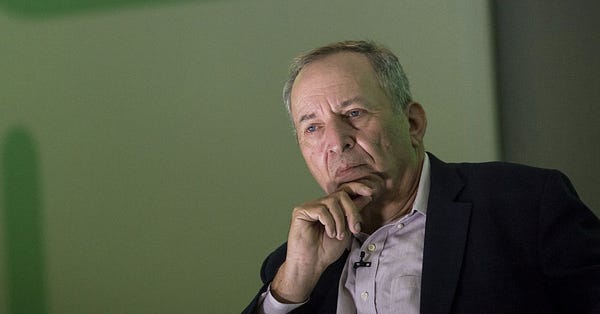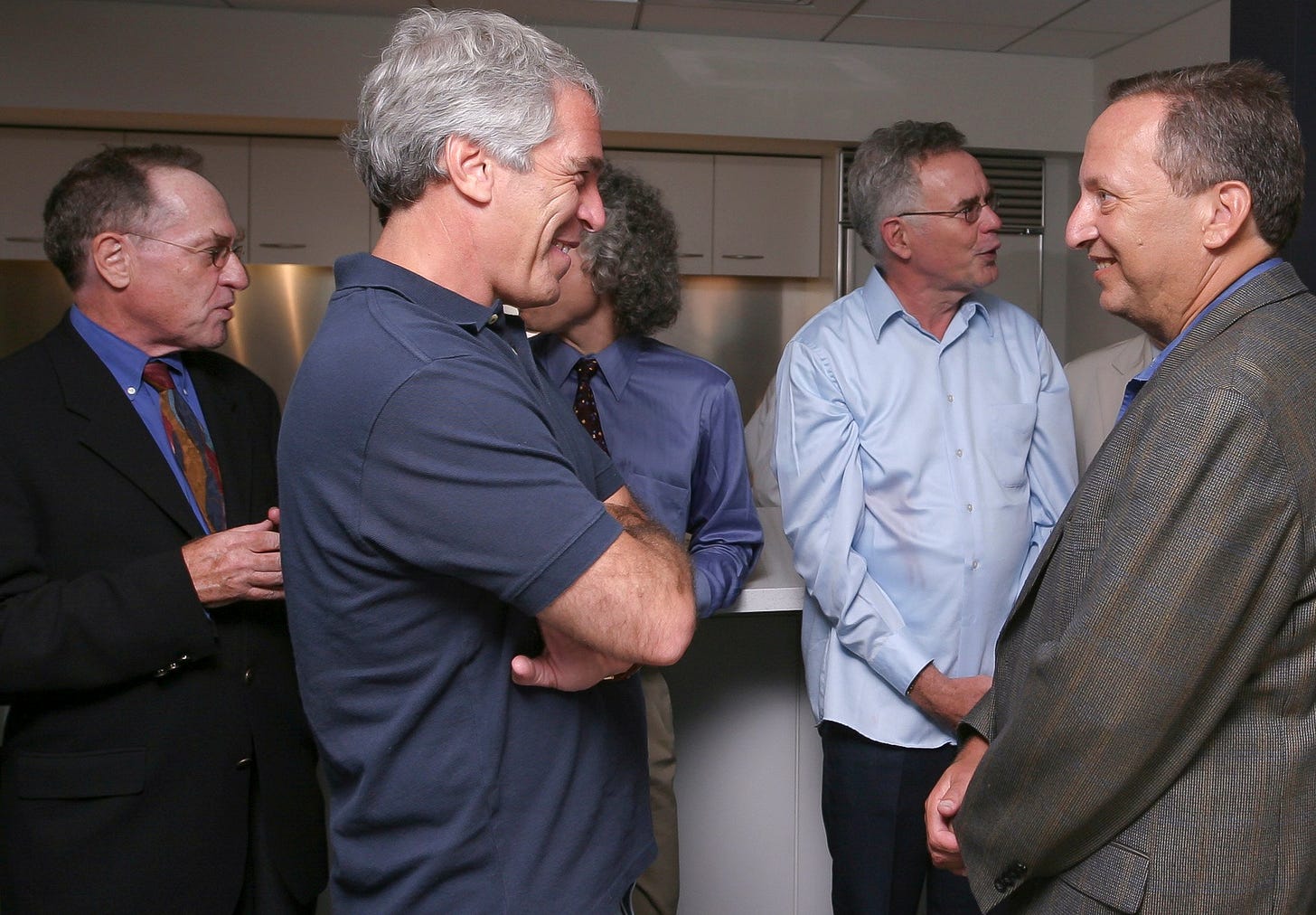Turn off your tape recorders.
We were scammed.
The biggest and most dangerous elements of Wall Street have taken over Washington. - Simon Johnson, 2010
The crash has laid bare many unpleasant truths about the United States. One of the most alarming, says a former chief economist of the International Monetary Fund, is that the finance industry has effectively captured our government - Simon Johnson, May 2009
There are two kinds of bankers to fear. The first is incompetent and runs a big bank. This includes such people as Chuck Prince (formerly of Citigroup) and Ken Lewis (Bank of America). These people run their banks onto the rocks – and end up costing the taxpayer a great deal of money. But, on the other hand, you can see them coming and, if we ever get the politics of bank regulation straightened out again, work hard to contain the problems they present.
The second type of banker is much more dangerous. This person understands how to control risk within a massive organization, manage political relationships across the political spectrum, and generate the right kind of public relations. When all is said and done, this banker runs a big bank and – here’s the danger – makes it even bigger.
Jamie Dimon is by far the most dangerous American banker of this or any other recent generation. - Simon Johnson, April 2010
This is a picture of the billionaire CEO of a government supported too-big-to-fail megabank, telling his 60 Minutes interviewer that he has no control over his compensation, as that’s determined by the CEO’s board of directors. Interestingly enough, this is also a picture of the billionaire Chairman of that board. And it’s not just the billionaire CEO bank manager. It’s his centimillionaire lieutenant bank managers. It’s the dozens of decamillionaire sub-lieutenant bank managers. All of them made generationally rich from stock-based compensation in a company where the government guarantees their success. None of them entrepreneurs. None of them risk-takers with their own skin in the game. All of them … lifer managers of a too-big-to-fail bank. - Ben Hunt, 2019
Our exchange heated up quickly. By the time we got to the Consumer Financial Protection Bureau, we weren’t quite shouting, but we were definitely raising our voices. At this point -- early in 2013 -- Rich Cordray was still serving as director of the consumer agency under a recess appointment; he hadn’t yet been confirmed by the Senate, which meant that the agency was vulnerable to legal challenges over its work. Dimon told me what he thought it would take to get Congress to confirm a director, terms that included gutting the agency’s power to regulate banks like his. By this point I was furious. Dodd-Frank had created default provisions that would automatically go into effect if there was no confirmed director, and his bank was almost certainly not in compliance with the those rules. I told him that if that happened, “I think you guys are breaking the law.”
Suddenly Dimon got quiet. He leaned back and slowly smiled. “So hit me with a fine. We can afford it.”
- Elizabeth Warren, describing a 2013 incident
Yesterday’s headline making the rounds was that JPMorgan Chase’s Board had given its Chairman and CEO, Jamie Dimon, a pay raise to $34.5 million for 2021 that was 10 percent more than 2020…
The real breaking news is that despite JPMorgan Chase admitting to five criminal felony counts brought by the U.S. Department of Justice over the past 7 years for rigging markets and laundering money for Bernie Madoff, the financial criminal of the century, the Board of JPMorgan Chase has not sacked Dimon, the man who sat at the helm during this unprecedented crime spree. Instead of sacking Dimon, the Board of the largest federally-insured, taxpayer-backstopped bank in the United States has made Dimon a billionaire.




OneMain is part of Citigroup thanks to a Wall Street dealmaker named Sandy Weill, who realized the stunning possibilities of this kind of business back in 1986. At the time, Weill had recently been eased out from Shearson Lehman/American Express, a financial conglomerate he had helped to build. Eager to get back in the game, he bought a Baltimore firm called Commercial Credit. In the view of Weill and his protégé, Jamie Dimon, their new acquisition was in the beneficent business of supplying “consumer finance” to “Main Street America.” Their office receptionist, Alison Falls, thought otherwise. Overhearing their conversation at work one day, she called out, “Hey, guys, this is the loan-sharking business. ‘Consumer finance’ is just a nice way to describe it.” - Andrew Cockburn, “Saving the Whale Again: The catastrophic incompetence of Citigroup”
Obsessing over Household, he attended a lunch organized by a big Wall Street firm. The guest speaker was Herb Sandler, the CEO of a giant savings and loan called Golden West Financial Corporation. "Someone asked him if he believed in the free checking model," recalls Eisman. "And he said, 'Turn off your tape recorders.' Everyone turned off their tape recorders. And he explained that they avoided free checking because it was really a tax on poor people--in the form of fines for overdrawing their checking accounts. And that banks that used it were really just banking on being able to rip off poor people even more than they could if they charged them for their checks."
Eisman asked, "Are any regulators interested in this?"
"No," said Sandler.
"That's when I decided the system was really, 'Fuck the poor.'"
- Michael Lewis, The Big Short
New York Fed Board of Directors as of June 2006
New York Fed Board of Directors as of August 2007. Look who replaced Sandy Weill.
Coincidentally, they all got bailed out a year later.
Paulson later told me that he believed that Morgan Stanley was just days away from collapse, and Ben Bernanke, the chairman of the Federal Reserve, similarly confided that he believed that Goldman Sachs would have been the next to go.
- Neil Barofsky, Bailout
…don’t kid yourself. If Goldman and Morgan Stanley collapsed, you could forget about JP Morgan’s “fortress balance sheet”.


In 2008 Citigroup collapsed, receiving the largest bailout in U.S. history, the majority of which was kept secret for years from the American people. Once the full details came to light, Citigroup had received $45 billion in an equity infusion from taxpayers; over $300 billion in asset guarantees from taxpayers; and more than $2.5 trillion in secret, cumulative, below market-rate loans from the Federal Reserve from 2007 to 2010.
Sandy Weill walked away with more than a billion dollars in total compensation; Reed walked away a multi-multi-millionaire. Shareholders have lost approximately 90 percent of the value of the stock from the year before the crash.
Since the Wall Street crash in 2008, writers at the New York Times have repeatedly misstated the role that repealing Glass-Steagall played in the collapse. And despite repeated requests from Wall Street On Parade to the Editor, Publisher and Public Editor of the New York Times to correct the critically wrong information, they have allowed the misinformation to stand, suggesting they are engaging in a propaganda campaign on behalf of their hometown industry.
- the must-follow site WallStreetOnParade.com
…the Banking Act of 1933 (also known as the Glass-Steagall Act) was legitimate legislation that followed the 1929 stock market crash and onset of the Great Depression. It was enacted by a Congress that was genuinely intent on making sure that Wall Street could never again use bank depositors’ money to make reckless gambles in the stock market that left those banks insolvent and depositors’ destitute. The Banking Act of 1933 created federal deposit insurance for the first time while also banning deposit-taking banks from being under the same roof with Wall Street investment banks and brokerage firms.
The Banking Act of 1933 protected the financial system of the United States for the next 66 years until its repeal under the Wall Street-chummy Clinton administration in 1999. It took just 9 years after its repeal for Wall Street to get its hands on those deposits again and collapse the financial system, bringing on the greatest economic downturn since the Great Depression.
This is why they had to repeal Glass-Steagall.
In 1998 Sandy Weill and John Reed merged the FDIC-insured Citibank with Salomon Smith Barney, an investment bank and brokerage firm, and insurance companies controlled by Travelers Group to create the global behemoth known as Citigroup. The duo initially served as Co-Chairmen and Co-CEOs. At the time, the deal violated the Glass-Steagall Act, the Depression era law which barred firms primarily engaged with underwriting securities to affiliate with insured banks.
The Bill Clinton administration would obligingly repeal the Glass-Steagall Act the year after the Citigroup merger and Clinton’s Treasury Secretary, Robert Rubin, would promptly take a seat on Citigroup’s Board, pulling down $126 million in compensation over the next decade.
In 1981, the median homebuyer age was 31. By 2019, it was 47. But the important thing is that Sandy Weill got to be a billionaire.
We are constantly being played for idiots by billionaires. And we deserve it, for electing the politicians we elect. If you think this is the fault of one party, not both, you are delusional and I cannot help you.
This is John Reed talking here - in 2009 - not Ralph Nader.
Lawmakers were wrong to repeal the Depression-era Glass-Steagall Act in 1999, Reed said. At the time, he supported overturn of the law, which required the separation of institutions that engaged in traditional customer banking services from those involved in capital markets.
“We learn from our mistakes,” [no, we don’t - rh] said Reed, who wrote an Oct. 21 letter to the editor of the New York Times endorsing a division of banking activities. “When you’re running a company, you do what you think is right for the stockholders. Right now I’m looking at this as a citizen.”
Reed headed Citicorp for 14 years until the merger with Travelers. The deal created the world’s biggest financial company in a stock swap valued at about $85 billion. Reed and Weill were co-chairmen and co-chief executive officers until Reed’s retirement in 2000.
2016: “In a sign of just how unpopular Wall Street is in America right now, reinstating the Glass-Steagall Act is in BOTH the Republican and Democratic platforms."
Same thing in 2020. Both parties constantly lie to us.
Hey - look who gave the introduction at the 1999 repeal of Glass-Steagall: Larry Summers
Larry Summers and the Subversion of Economics
Between 2001 and his entry into the Obama administration, he made more than $20-million from the financial-services industry. (His 2009 federal financial-disclosure form listed his net worth as $17-million to $39-million.)
Note: This is a really good article about how awful Larry is, besides him being a longtime close friend of Jeffrey Epstein. From the guy who made Inside Job.






I could’ve kept typing this piece for days, with hundreds or thousands of examples. What do you think I’ve been trying to educate everyone about for many years?











It never ceases to amaze just how corrupt the system actually is. I think of the Dimon response to Warren, go ahead fine me, and realize that the laws are created incorrectly. there doesn't need to be any monetary penalty, just take senior management and imprison them. and these days, insure that all their meals are bugs and bugs only. plenty of protein there for them.
Awesome article as always, sir. Nothing has changed. Just look at the timing of the $48T repo loan bailouts....
https://twitter.com/OccupytheFeds/status/1501403272829153280?s=20&t=9DY-bPhagJ_X4_UdYhM-cA